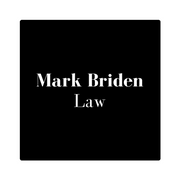Understanding the Difference Between Insolvency & Bankruptcy

When you've experienced financial strain for an extended period, you might need to consult with a lawyer about getting your finances back on track. During this consultation, they'll likely discuss insolvency and bankruptcy. Both of these options can help you keep your funds in order, so prepare yourself for your meeting by learning more about them and determining which is best for you.
What Is Insolvency?
 When your liabilities exceed your assets, you're considered insolvent. To avoid bankruptcy at this point, you'll need to take corrective actions to improve your situation. Some include taking on additional work to supplement your income, lowering your overhead costs to make it easier to pay your debts, or negotiating with your lenders to revise the repayment terms of your loans or debts.
When your liabilities exceed your assets, you're considered insolvent. To avoid bankruptcy at this point, you'll need to take corrective actions to improve your situation. Some include taking on additional work to supplement your income, lowering your overhead costs to make it easier to pay your debts, or negotiating with your lenders to revise the repayment terms of your loans or debts.
What Is Bankruptcy?
If you're unable to manage your insolvency, you may have to file for bankruptcy. In this case, you would begin the legal process of discharging your debts. Depending on whether you're representing yourself as an individual or an entity, and whether you want to keep your assets or not, you have the option to file for Chapter 7, Chapter 11, or Chapter 13 bankruptcy. Your attorney will outline how each one differs to help you choose the right option for your needs and future.
If you’re thinking about filing for bankruptcy, consult the attorneys at The Law Office of Mark Briden in Redding, CA. This reputable law firm has been helping clients with bankruptcy cases since 1987, offering an innate understanding of the laws and proceedings of this practice area. They also have payment plans to ensure everyone can take advantage of their legal help, no matter their financial situation. Call (530) 222-1664 for a free consultation, and visit their website to get in touch with a team member today.
About the Business
Have a question? Ask the experts!
Send your question

